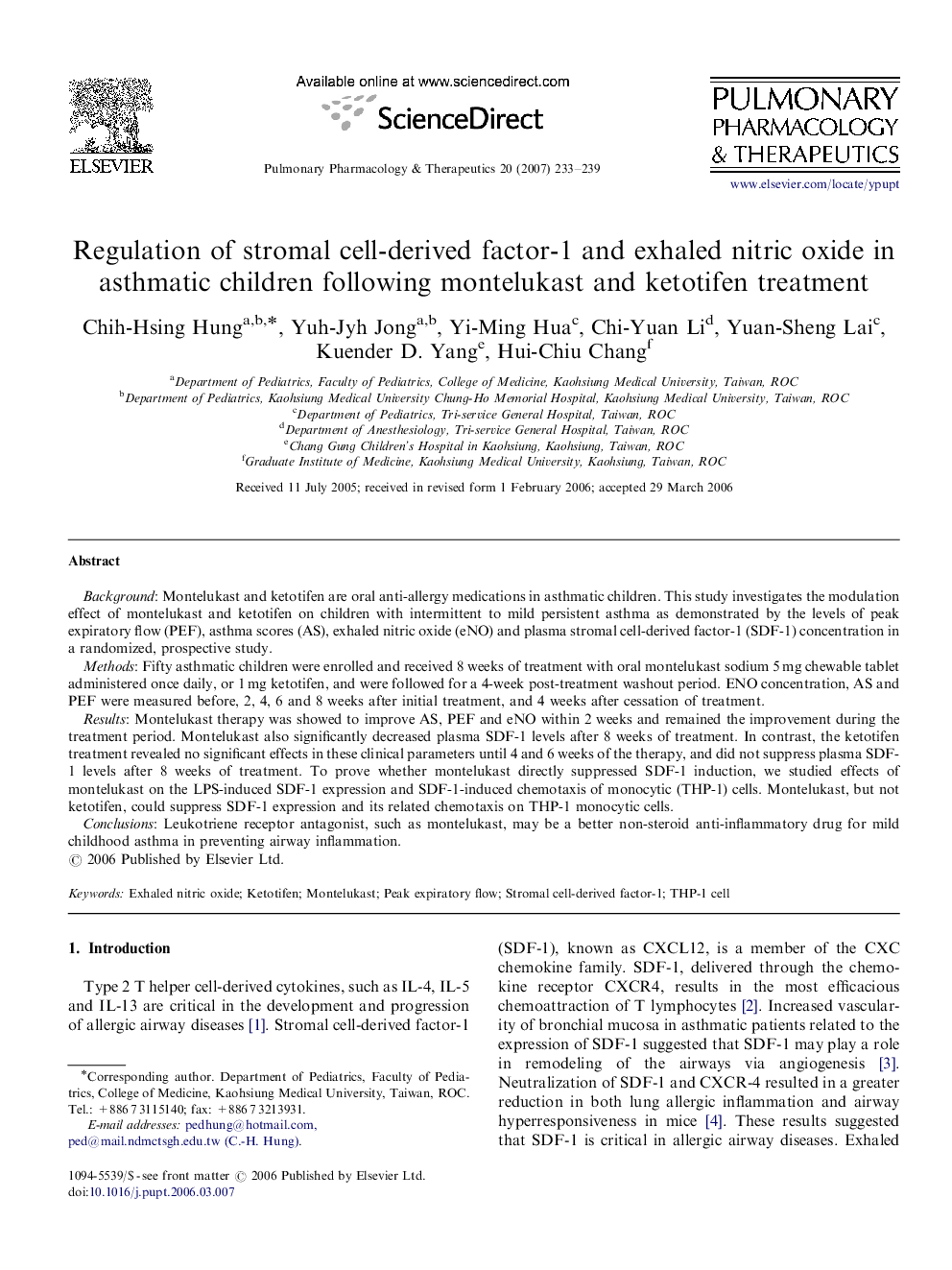| Article ID | Journal | Published Year | Pages | File Type |
|---|---|---|---|---|
| 2567713 | Pulmonary Pharmacology & Therapeutics | 2007 | 7 Pages |
Background: Montelukast and ketotifen are oral anti-allergy medications in asthmatic children. This study investigates the modulation effect of montelukast and ketotifen on children with intermittent to mild persistent asthma as demonstrated by the levels of peak expiratory flow (PEF), asthma scores (AS), exhaled nitric oxide (eNO) and plasma stromal cell-derived factor-1 (SDF-1) concentration in a randomized, prospective study.Methods: Fifty asthmatic children were enrolled and received 8 weeks of treatment with oral montelukast sodium 5 mg chewable tablet administered once daily, or 1 mg ketotifen, and were followed for a 4-week post-treatment washout period. ENO concentration, AS and PEF were measured before, 2, 4, 6 and 8 weeks after initial treatment, and 4 weeks after cessation of treatment.Results: Montelukast therapy was showed to improve AS, PEF and eNO within 2 weeks and remained the improvement during the treatment period. Montelukast also significantly decreased plasma SDF-1 levels after 8 weeks of treatment. In contrast, the ketotifen treatment revealed no significant effects in these clinical parameters until 4 and 6 weeks of the therapy, and did not suppress plasma SDF-1 levels after 8 weeks of treatment. To prove whether montelukast directly suppressed SDF-1 induction, we studied effects of montelukast on the LPS-induced SDF-1 expression and SDF-1-induced chemotaxis of monocytic (THP-1) cells. Montelukast, but not ketotifen, could suppress SDF-1 expression and its related chemotaxis on THP-1 monocytic cells.Conclusions: Leukotriene receptor antagonist, such as montelukast, may be a better non-steroid anti-inflammatory drug for mild childhood asthma in preventing airway inflammation.
